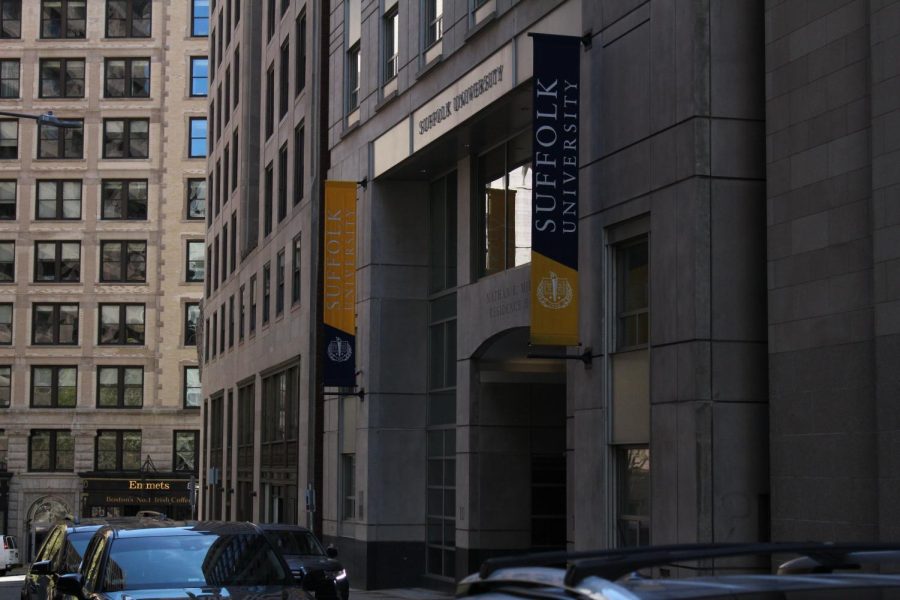A false narrative in American history has been that the Northern states were the land of the free and that slavery was confined to the Southern states. Part of the reason for this narrative is because of the geographic differences between the two regions. Unlike the South’s plantations, slavery in the North was mostly relegated to the cities. Due to the urban nature of slavery in the North, enslaved people built various skills, such as shipbuilding.
Marc Ross, William Rand Kenan Jr. Emeritus Professor in Political Science at Bryn Mawr College, and Associate Professor of History at Suffolk University Robert Bellinger, hosted a discussion to dispel the false narrative. Ross and Bellinger argued that slavery was an entrenched and supported national institution.
“Americans hate history, but they love nostalgia, and they love creating false narratives about the past,” said Bellinger.
Bellinger shared that one of his descendants was a slaveholder from South Carolina, while another was an enslaved person.
“History of the United States is not one of enslaved or free, but one of both,” said Professor Bellinger. In an interview with The Suffolk Journal, both professors stressed that immigrants have benefited from slavery, even if they might not have a direct link to the slaveholders.
“The heavy lifting had been done by enslaved ancestors. When we think about immigration, we forget that part of a reason France gave the [Statue of Liberty] is as a memorial to the enslaved,” said Professor Bellinger.
When coming into the United States, immigrants often came through the port cities of the North, such as Boston and New York City. Ross emphasized the entwined role of slavery and economics of the North.
“Earnings from slave trading funded the North’s earliest industries and created the wealth of much of the region’s early economic and political elites,” said Ross. That wealth, according to Ross, flowed into the founding of America’s earliest institutions of education, such as Princeton and Brown University.
Ross then argued that the wealth generated in the North and then supported the South.
“Their economics were totally tied to the system of enslavement. The bankers of New York funded the plantations of the South,” said Ross.
With such an impactful role that enslaved people had in building up the North structurally and economically, Ross offered six interconnected explanations as to why memories of enslavement have disappeared in the North: “graudal attrition through loss, destruction of sites associated with enslavement, incentives for forgetting, fear of retribution, feelings of shame and reframing of events and their meanings.”
Bellinger argued that it is not surprising that people in the North have forgotten about enslavement because it is a nation-wide occurrence in which non-desirable memories were erased from the nation’s conscious. For some of those who escaped slavery, Bellinger argued that they choose not to pass on their stories to avoid passing the burden to the next generation.
Public and commemorative sites have the emotional power to recover this collective memory, according to Ross. Likewise, Bellinger said the memories of people also have a role.
“For many years, it would have been difficult not to find an African-American who had a visceral memory with lynching,” said Professor Bellinger.
Bellinger thanked Professor Ross for using the term “enslaved”, rather than “slave”.
“It shows it’s a condition, not an identity,” said Bellinger.
To reverse their condition, Bellinger said that enslaved people were constantly active in different socio-political movements, from military service to petitioning the courts.
Bellinger linked the discussion to the founding values of America.
“There is no one in the United States who believed more in liberty then the enslaved,” said Bellinger. “Liberty, Freedom, Equality were values that the enslaved knew all too well.”
Bellinger stressed the importance of researching African Genealogy so African-Americans can find about the origin of their descendants. He added that it is important for descendants of enslaved and descendants of slaveholders to get in touch with each other and come to terms. This would help contribute to national healing.
Both agreed that dispelling false narratives surrounding enslavement in the North is an example of the discussions that should be taking place nationwide. “Now teaching history is more important than ever, especially with the way it’s being twisted,” said Ross. On the road towards reunion, both agreed that acknowledging history is a fundamental step.


















